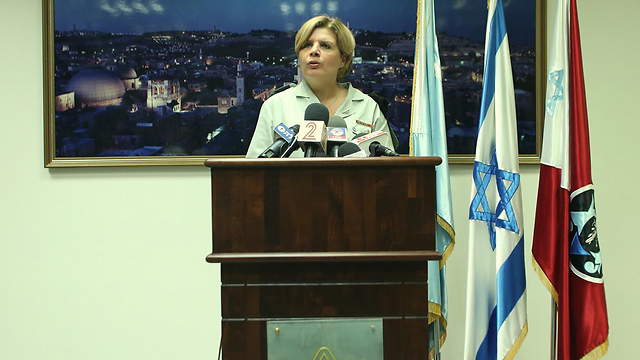
IDF may cut mandatory non-combat service by a year
Enlistees that army doesn't need 'costs more than just a salary,' adjutant says 30% of manpower from main Tel Aviv bases could be cut without anyone noticing
The IDF is weighing the option of discharging soldiers in certain military positions on the home front prior to completing their mandatory service of three years.
Those serving in administrative positions on bases in the home front would have their service cut by anywhere from a few months to an entire year.
A special committee, led by a brigadier general, has been formed in order to see if the recommendation is viable. The committee is presently set to bring its conclusions forward to Adjutant General Orna Barvibai.
As the IDF recruits every citizen in the country at the age of 18, with certain notable exceptions, it is forced to place every soldier in a position, whether it be considered significant or not in the eyes of the top brass.
Related stories:
- Iranian-born soldiers are hot commodity in IDF
- Rabbi combats girls' enlistment to IDF
- Haredi protest: 'Army recruitment – blasphemous'
Due to a lack of motivation, a surplus of enlistees finds themselves in superfluous positions having not requested to join a combat unit, which the army is in need of.
The IDF is particularly focusing on soldiers in the Iron Triangle, a nickname for the Gush Dan bases of the Kirya compound in Tel Aviv, the Tel Hashomer recruitment center and the Tzrifin camp, who are serving as clerks, secretaries or in other jobs that officers were forced to invent for them.
'Most end up AWOL'
A high ranking adjutant said that 30% of those positions could be cut and no one would know the difference.
"You have to admit that there's hidden unemployment in the army," the adjutant said.
The official said that most of the soldiers are on base for two to three hours each day for three to four days a week. They're not willing to go to far-off bases, and when they are sent away from home most end up AWOL and are just sent to jail or released after a certain period of time.
"The soldiers that the army doesn't need cost it more than just a salary," the source said. "There are medical expenses, special-needs housing costs, and expenses for the Military Police and jails, as well."
Despite the need for change, the fear in the ranks will be the separation in equality of soldiers being discharged earlier than their friends who are serving in combat units, one officer said.
"How will we be able to look the combat soldiers in the eye when they're putting their lives at risk, going home once every two weeks and barely sleeping at night when they see that those who got out of combat also had their service cut?"
Furthermore, an infantry soldier serves in a reserve capacity until he's 40 years old, which will only pile on the blow the motivation to volunteer for combat, when non-combat soldiers wil be exempt from reserve duty.

Adjutant General Barvibai said that this or any other similar course of action could not be taken until proper compensation would be awarded to the combat soldiers, more than their NIS 800 ($225) salary a month.
Barvibai recommended that the third year salary for combat soldiers be in the range of the current national minimum wage, NIS 4,300 ($1,230).
Female enlistment
The other phenomenon that the IDF is keen to get rid of is the female population evading military service by religious declaration. About 40% of girls aged 18 do not enlist in the army, while 36% of them receive their exemption through an affirmation that by being religious the army is not suitable for them.
The military is certain that many of the affirmations are false since all that is required is for the women to sign a form stating that they are religiously observant.
Attempts to change the affirmation have been met by opposition from the Haredi and religious parties in the Knesset.











